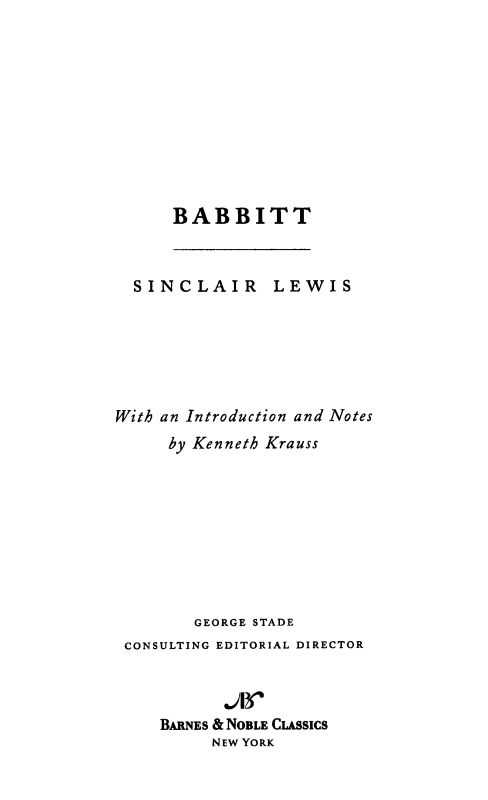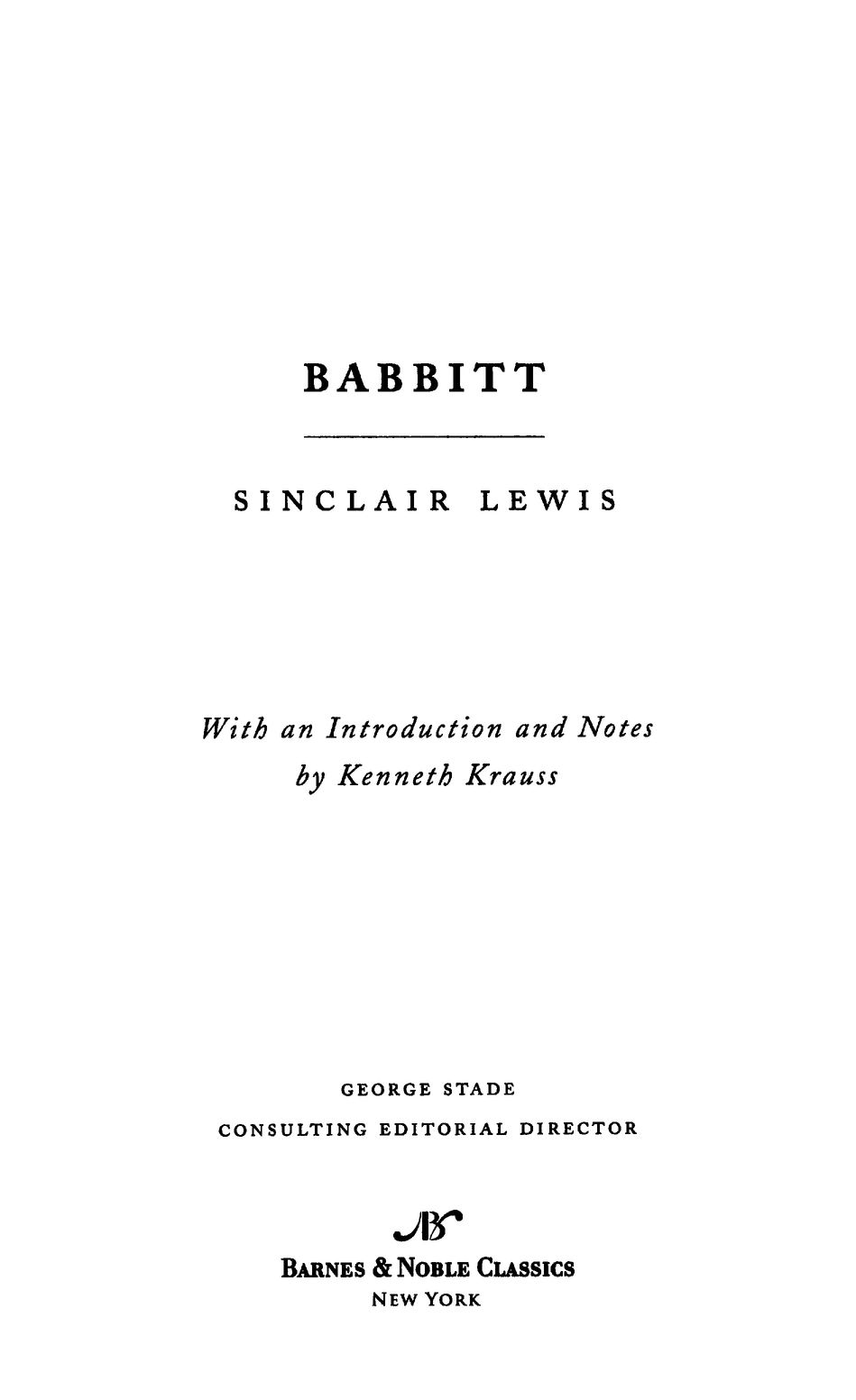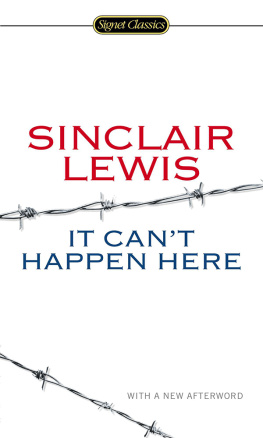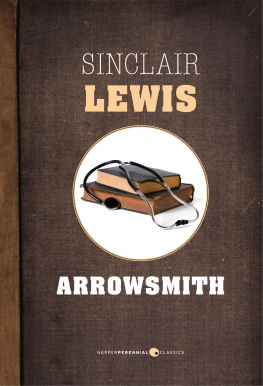
Table of Contents
FROM THE PAGES OF
BABBITT
His name was George F. Babbitt. He was forty-six years old now, in April, 1920, and he made nothing in particular, neither butter nor shoes nor poetry, but he was nimble in the calling of selling houses for more than people could afford to pay. (page 4)
A sensational event was changing from the brown suit to the gray the contents of his pockets. He was earnest about these objects. They were of eternal importance, like baseball or the Republican Party. (page 10)
To George F. Babbitt, as to most prosperous citizens of Zenith, his motor car was poetry and tragedy, love and heroism. The office was his pirate ship but the car his perilous excursion ashore. (page 23)
Babbitt did not often squabble with his employees. He liked to like the people about him; he was dismayed when they did not like him. It was only when they attacked the sacred purse that he was frightened into fury, but then, being a man given to oratory and high principles, he enjoyed the sound of his own vocabulary and the warmth of his own virtue. (page 65)
I hate your city. It has standardized all the beauty out of life. It is one big railroad stationwith all the people taking tickets for the best cemeteries. (page 91)
For many minutes, for many hours, for a bleak eternity, he lay awake, shivering, reduced to primitive terror, comprehending that he had won freedom, and wondering what he could do with anything so unknown and so embarrassing as freedom. (page 119)
Its the fellow with four to ten thousand a year, say, and an automobile and a nice little family in a bungalow on the edge of town, that makes the wheels of progress go round! (page 164)
She had become secretary to Mr. Gruensberg of the Gruensberg Leather Company; she did her work with the thoroughness of a mind which reveres details and never quite understands them; but she was one of the people who give an agitating impression of being on the point of doing something desperateof leaving a job or a husbandwithout ever doing it. (page 203)
Culture has become as necessary an adornment and advertisement for a city to-day as pavements or bank-clearances. Its Culture, in theaters and art-galleries and so on, that brings thousands of visitors to New York every year and, to be frank, for all our splendid attainments we havent yet got the Culture of a New York or Chicago or Bostonor at least we dont get the credit for it. The thing to do then, as a live bunch of go-getters, is to capitalize Culture; to go right out and grab it. (page 236)
Thus it came to him merely to run away was folly, because he could never run away from himself. (page 270)
George, when it comes right down to a struggle between decency and the security of our homes on the one hand, and red ruin and those lazy dogs plotting for free beer on the other, you got to give up even old friendships. He that is not with me is against me. (page 309)
All of them agreed that the working-classes must be kept in their place; and all of them perceived that American Democracy did not imply any equality of wealth, but did demand a wholesome sameness of thought, dress, painting, morals, and vocabulary. (page 347)
Ive never done a single thing Ive wanted to in my whole life! I dont knows Ive accomplished anything except just get along. (page 356)

SINCLAIR LEWIS
Harry Sinclair Lewis was born on February 7, 1885, in Sauk Centre, Minnesota, an immigrant farming village with a population of little more than a thousand. When he was six years old, his mother died; his father, a country doctor, remarried a year later. Lewiss early experiences living in a rural midwestern town would influence much of his writing; Main Streets Gopher Prairie, for example, is modeled after Sauk Centre and features many of the community organizations in which his stepmother participated.
In 1903 Lewis moved east to attend Yale University, where he began contributing regularly to the Yale Literary Magazine. He became dissatisfied with college life, however, and dropped out in 1906 to work as a janitor in the utopian community Helicon Hall. Founded by Upton Sinclair, Helicon Hall was a mecca for progressive thinkers of the time, including Ralph Waldo Emerson. Lewis left after two months and spent the next few years working at odd jobs before returning to Yale to graduate in 1908.
Lewis traveled around the country for two years, and then settled in New York Citys Greenwich Village, a center for avant-garde artists and writers. He worked in publishing during the day and spent his evenings writing short stories and novels. His first book, a boys adventure story titled Hike and the Aeroplane, was published in 1912.
In 1914 Lewis married Grace Livingston Hegger and the couple moved to Port Washington, on Long Island. Lewis became editor and advertising manager at the George H. Doran Publishing Company. He continued to devote his evenings to writing fiction, and when the publication of a story in the Saturday Evening Post proved lucrative, Lewis quit his job to become a full-time novelist.
The 1920 publication of Main Street marked the beginning of Lewiss international acclaim as a satirical novelist. An instant best-seller, Main Street sold more than 250,000 copies by the end of its first year of publication. Lewis quickly followed this success with several other well-received novelsBabbitt (1922), about an unhappy businessman wanting more in his life; Arrowsmith (1925), about an idealistic doctor and researcher; and Elmer Gantry (1927), a send-up of an evangelical scam artist. In 1926 Lewis was awarded the Pulitzer Prize for Arrowsmith. He declined to accept the prize, stating that his novel did not meet the wholesome standards of the committee.
Lewis married the well-known journalist Dorothy Thompson in 1928, having divorced his first wife, Grace, earlier that year. He spent the next several years writing and traveling between the United States and Europe. In 1930 he became the first American to win the Nobel Prize for Literature.
Lewiss reputation declined in succeeding years. After the publication of The Prodigal Parents (1938), he was never able to draw the wide readership of his earlier days. His marriage to Dorothy Thompson ended in divorce in 1942, and he spent the last years of his life in Europe, alone and suffering from alcoholism and ill health. On January 10, 1951, Harry Sinclair Lewis died of a heart attack in Rome at the age of sixty-five. He is buried in Minnesota.
THE WORLD OF SINCLAIR LEWIS
ANDBABBITT
| 1885 | Harry Sinclair Lewis is born on February 7 in Sauk Centre, Minnesota, to Dr. Edwin J. Lewis and Emma Kermott Lewis. |
| 1891 | His mother dies of tuberculosis. A year later his father marries Isabel Warner. |
| 1902 | Lewis enrolls at Oberlin Academy in Ohio. |
| 1903- 1906 | Lewis attends Yale University, where he contributes to the Yale Literary Magazine. He spends two summers working on cattle boats that sail between America and England. |
| 1906 | Lewis leaves Yale for a brief stay at Helicon Hall, a utopian community in Englewood, New Jersey, founded by the writer Upton Sinclair. |





